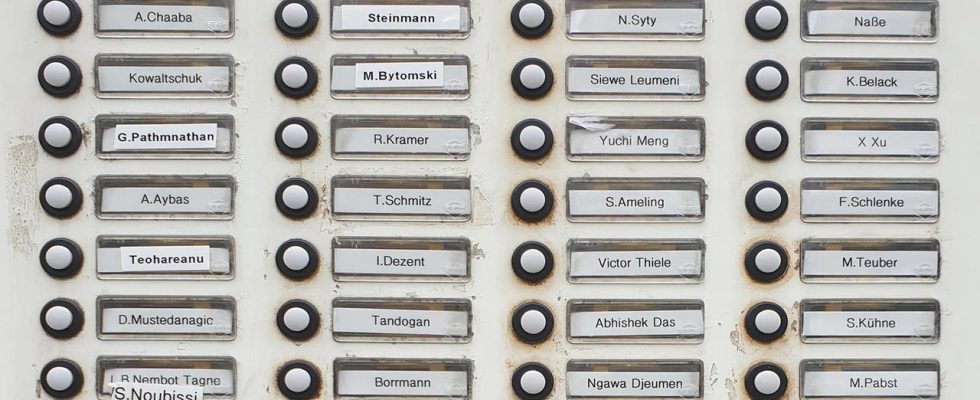Anyone whose name is Müller should in future be allowed to call themselves Schmidt – provided one of their parents has the same name. The cabinet has passed a corresponding reform that provides more freedom of choice when choosing a surname.
German naming law is to become much more flexible. The cabinet has passed a bill that will provide more opportunities for double names and name changes.
As before, married couples can choose one of the two names at birth or their previous names, or they can keep their previous names.
Unlike before, a common double name should also be possible in the future. Unless there are already one or two double names – then only one of the two components may be included in a new double name. In addition, it should be possible that only one of the components of a double name becomes the new married name.
New rules also for children’s surnames
Changes are also planned for the surnames of children: If there is no common married name, children will either continue to have the name of one of the two parents or a double name formed from them.
If the children are of legal age, they should in future also use the name of the other parent instead of the name they have received, or be allowed to choose a double name from both parents’ names. They should also be able to shorten a double name.
The reform also provides that children from non-marital partnerships can be given a double name formed from the two surnames. A common name for the partners is still not possible in this case.
Name changes should also be made easier for minor children from a divorced marriage if the child lives with the parent whose name is not the married name.
Minority rights should be strengthened
Also new is the possibility of gender-adapted married names if one spouse belongs to a minority where this is traditionally the norm. In the case of the Sorbian ethnic group, for example, this applies to the addition of the ending “-owa” to women.
With the reform, surnames derived from the first name of a parent are also possible if a child belongs to the Frisian ethnic group – for example the surname “Jansen” if the father’s first name is “Jan”.
He speaks of a “coherent start”: Justice Minister Buschmann.
Buschmann: Prelude to the modernization of family law
Justice Minister Marco Buschmann justified the reform with “outdated role models, illogical rules, bureaucratic procedures”. The planned new regulations are “the right start for our modernization of family law,” announced the FDP politician.
The draft law still has to go through the Bundestag and Bundesrat, but should come into force on May 1, 2025 if possible. The Ministry of Justice justifies the long lead time with the necessary conversion of the largely digitized registry offices.

